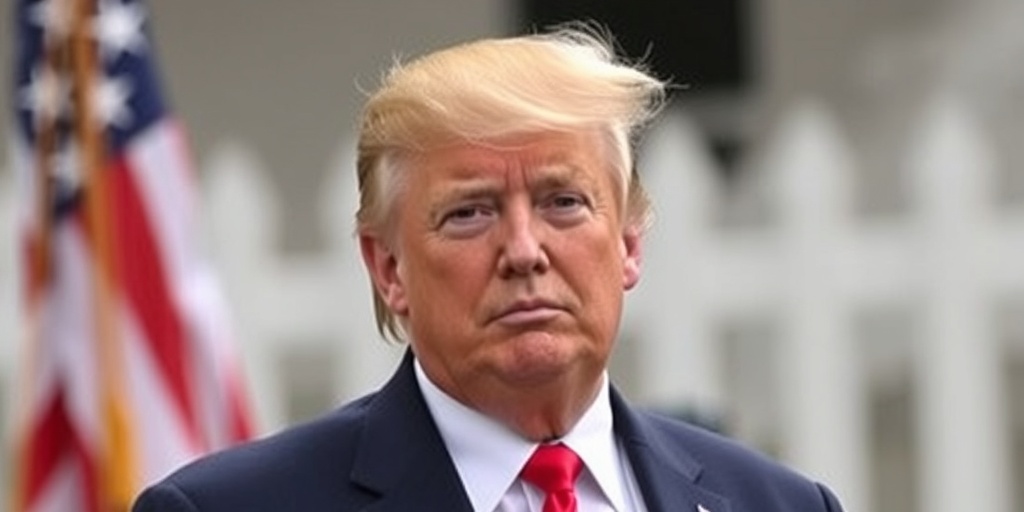Now Reading: Trump-Clemency Recipient Charged with Child Injury
-
01
Trump-Clemency Recipient Charged with Child Injury
Trump-Clemency Recipient Charged with Child Injury

Jonathan Braun’s Legal Troubles Continue Following Clemency from Trump
Jonathan Braun, who garnered attention when former President Trump commuted his federal prison sentence over four years ago, has once again found himself entangled in serious legal challenges. On Saturday, Braun was arrested in Long Island after being charged with assaulting an acquaintance and the man’s 3-year-old child. This latest incident marks the fourth time he has been arrested since his release from prison.
According to court documents, Braun physically assaulted the man by punching him in the face and then reportedly shoved the child to the ground, causing visible marks on the child’s back and significant pain. Braun now faces multiple charges, including assault, child endangerment, and inflicting injury on a child under seven years old. After his arrest, he was released on bail on Monday. Efforts to reach Braun’s attorney for comments were unsuccessful.
Braun was originally sentenced to 10 years in prison for his role in a marijuana smuggling operation, but in the final hours of Trump’s administration in early 2021, his sentence was commuted as part of a last-minute clemency spree that benefitted several of Trump’s allies. Braun’s family leveraged connections to Charles Kushner, father of Jared Kushner (Trump’s son-in-law), to seek clemency, leading to the drafting of the commutation announcement by Jared Kushner’s White House office.
Following his release, however, Braun quickly returned to the predatory lending industry, only to face legal sanctions. He was banned from operating in that sector by both New York State and federal judges for deceptive practices. Additionally, he has amassed a troubling array of criminal accusations, including multiple allegations of violence against family members and others. These offenses range from physical assaults on his wife and father-in-law to inappropriate behavior towards a nanny and threats directed at a congregant in his synagogue for requesting silence during services. In one instance, Braun allegedly told the congregant, “Do you know who I am or what I can do to you?”
Braun’s behavior raises significant questions regarding the efficacy of Trump’s clemency decisions, particularly considering that several individuals who received clemency during Trump’s first term have since faced new criminal charges. Critics argue this highlights a troubling pattern where Trump’s use of clemency appears to prioritize personal connections over public safety and thorough vetting of potential recipients.
In his second term, Trump has consolidated the clemency review process, bypassing traditional Justice Department protocols and creating a scramble among lawyers and lobbyists seeking to influence his decisions. While he has focused on prosecuting certain types of crime, particularly those involving immigrants or incidents that he perceives as politically motivated, Braun’s case exemplifies a stark disconnect between rhetoric on crime and the administration’s actions.
Despite Braun’s criminal past and multiple arrests since his release, he remains on supervised release, a form of federal parole, and Judge Kiyo A. Matsumoto, who sentenced him, has refrained from revoking his release despite the seriousness of his offenses. This ongoing legal saga has drawn scrutiny from law enforcement officials and legal experts who question the appropriateness of the clemency granted to Braun given his violent history.
During his prison term in 2020, negotiations were reportedly underway for Braun to assist federal prosecutors in their investigations of predatory lending practices. However, instead of cooperating, Braun pursued a path to clemency through political channels, culminating in the unexpected reduction of his sentence on Trump’s last day in office.
The implications of Braun’s commutation extend beyond his personal circumstances. Many observers in the legal sphere express alarm over how such clemency cases undermine federal investigations into predatory lending, as Braun’s release stripped prosecutors of critical leverage to pursue cases against others in this illicit business.
After being freed, Braun returned to predatory lending, leading to further encounters with law enforcement. In August, he faced charges for allegedly assaulting his wife and father-in-law during a domestic dispute. His violent tendencies have emerged repeatedly, with allegations of physical harm to both family members and acquaintances.
In a series of alarming incidents post-release, Braun has been linked to further legal issues, including allegations of inappropriate behavior towards household staff and threats to medical personnel assisting him. These actions not only illustrate a recurring pattern of violence but also underscore a troubling narrative about the misuse of presidential clemency powers.
As Jonathan Braun’s saga unfolds, it raises pressing questions regarding the integrity of the clemency process and its impact on safety, accountability, and the administration’s true commitment to law and order. The challenges posed by Braun’s actions continue to reverberate within discussions surrounding accountability, the allocation of justice resources, and the potential ramifications of political influence on the criminal justice system.
Stay Informed With the Latest & Most Important News
Previous Post
Next Post
-
 01New technology breakthrough has everyone talking right now
01New technology breakthrough has everyone talking right now -
 02Unbelievable life hack everyone needs to try today
02Unbelievable life hack everyone needs to try today -
 03Fascinating discovery found buried deep beneath the ocean
03Fascinating discovery found buried deep beneath the ocean -
 04Man invents genius device that solves everyday problems
04Man invents genius device that solves everyday problems -
 05Shocking discovery that changes what we know forever
05Shocking discovery that changes what we know forever -
 06Internet goes wild over celebrity’s unexpected fashion choice
06Internet goes wild over celebrity’s unexpected fashion choice -
 07Rare animal sighting stuns scientists and wildlife lovers
07Rare animal sighting stuns scientists and wildlife lovers





















